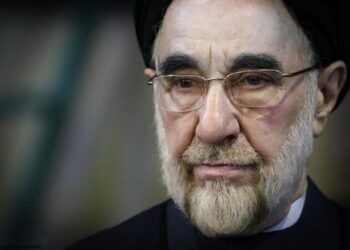Ground forces commander Brigadier General Ahmad-Reza Pourdastan said last Wednesday that the wave of the Islamic Awakening—as Iran labels the Arab Spring—has narrowed the US sphere of influence to the extent that “the slightest mistake” will spell the “annihilation” of the United States.
He pointedly did not say who would do the annihilating.
The wave of the Islamic Awakening and other developments in the region have forced the US to change its course, Pourdastan said.
“In the past, the Americans’ overt objective was to gain control over the oil resources of the region,… but their ulterior motive was to prevent the spread of the awakening of Muslim countries in the region,” Pourdastan said.
While it has been common in the Middle East to say the US goal is to control oil, Pourdastan did not cite where the United States had ever “overtly” cited that as a national objective. On the contrary, US officials have repeatedly laughed at the idea that that is a national objective, often noting in recent years that few of the Iraqi contracts issued for oilfield development this past decade have even gone to US firms.
Pourdastan said the US pursues hostile policies against the Islamic Republic because Washington believes Tehran has played a leading role in the awakening of regional nations.
Bahrain has accused Iran of being the hand behind the uprising of Shias in the island state, but US officials have stated on the record that Iran had no role in the start of the uprising, though the same officials say Iran is doing its best to keep the pot boiling in Bahrain.
As is standard in Iran, Pourdastan claimed that Iran’s Islamic revolution has provided the model for the wave of the Islamic Awakening in the Middle East and North Africa.
Despite all sanctions, he said, Iran has turned into a superpower in all fields and this is the reason that its enemies are mounting pressure on the country.
Pourdastan said a military strike had once been one of the enemy’s options, but military exercises held by the Iranian armed forces, the Iranian people’s “presence on the scene” and the guidelines of Supreme Leader Ali Khamenehi have changed the US strategy from military attack to sanctions.
As for Israel, Pourdastan asserted that recent threats to attack Iran were only made in Israel to boost the morale of its weak Army.
“They are not in a position to open a new front,” he said. “I believe that today the Zionist regime is weaker and smaller than 30 years ago because the 22-day war with Gaza and the 33-day war against Lebanon were fatal blows to the Zionist regime.” The Islamic Republic has always claimed that Israel “lost” those two confrontations, although one result was that Hamas and Hezbollah put bans on the shelling of Israel.














